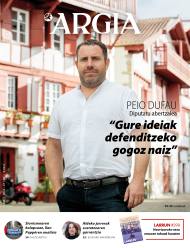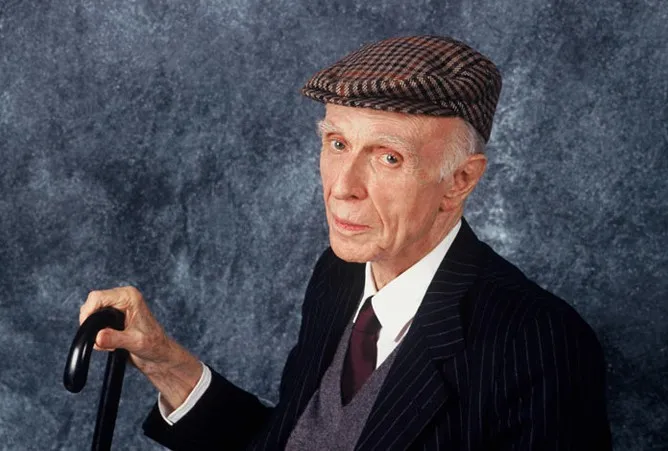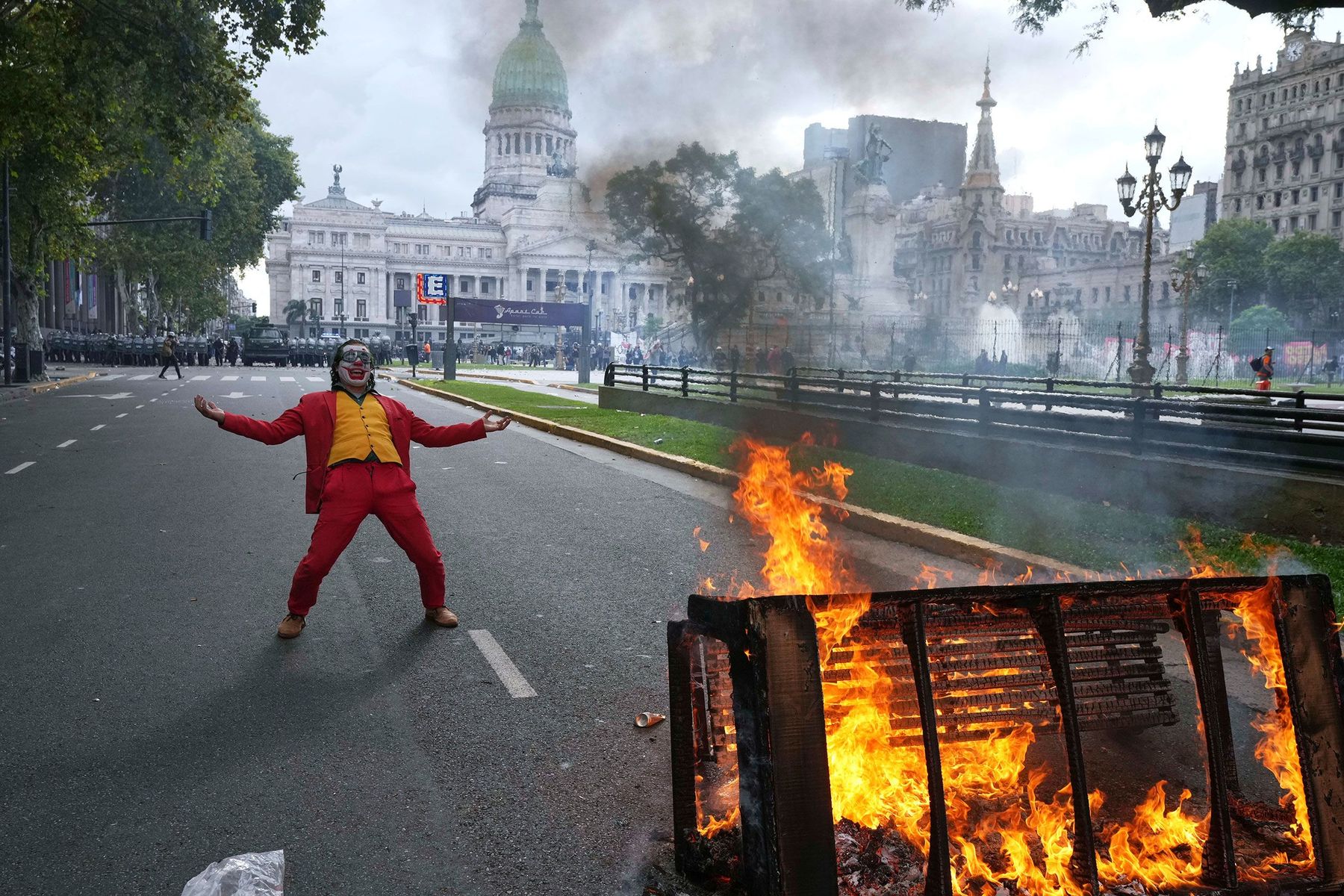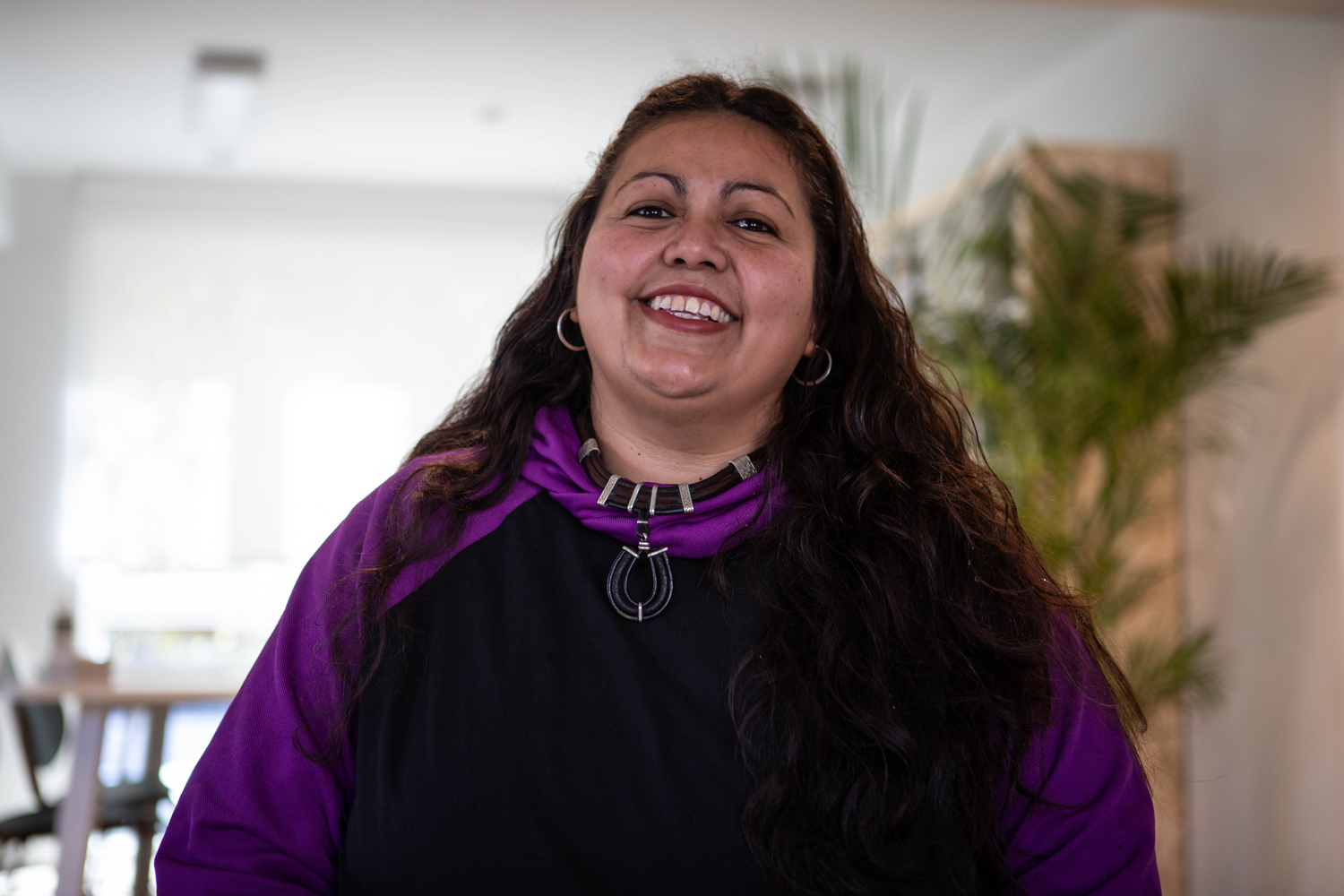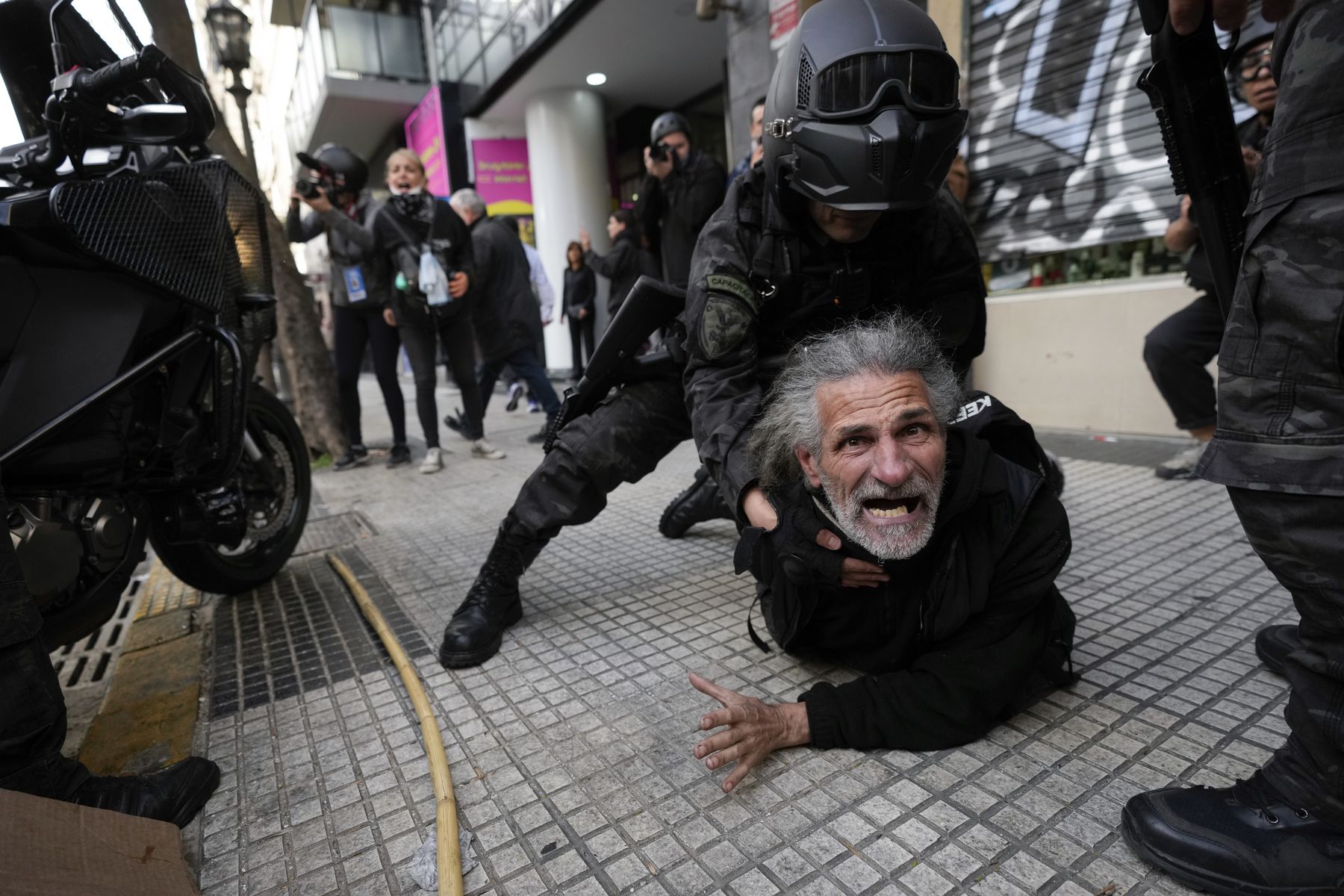"The important thing is to weave networks, offer help and work together. The priority is to survive now."
- We have talked to journalist Silvina Molina about the violation of gender rights. Molina was editor of the Genera and Diversity section of Télam, the Argentine public news agency, until the government of Javier Milei closed the agency in March. He has written books on journalism, inclusion and gender, has advised media and public and private institutions and is an advisor on communication and gender in international organizations. Since 2007 he has been a member of the national and international network of feminist journalists.

What does it look like to be a journalist in Argentina?
Now it's hard to do journalism, especially gender journalism. The government denies gender inequality and attacks us over and over again. The journalist María O'Donnell has often been the target of the president's attacks, which she calls "character assassination", and I have also suffered something similar. I left Télam, one of the oldest agencies in Latin America, which Milei has closed this year. I'm now reviewing my role as a journalist, trying to understand the new context and deciding how I'm going to go.
How do women journalists deal with this complex situation?Politicians
and journalists need to look at how we have come to this situation: what has been done wrong and what is right. We must acknowledge the good done, the cultural change that has taken place. As a result, actor Juan Darthés and former governor José Alperovich were convicted of rape. The journalists who supported the victims of the persecution of journalist Pedro Brieger, nineteen of the victims, talked about it. Until then this was unthinkable.
What is the strategy now?What we are denouncing these days is the lack of policies to protect women, adolescents and children who suffer
violence against women. By mentioning femicides and the lack of support from the State, government troll attacks are immediate on social media. There is little support from the national Government in the provinces, and what is important is networking with women journalists working in the provinces, offering them help and working together. The priority now is to survive.
What is the situation of feminism in Argentina?
When the government announced that it would close the gender perspective, it immediately turned to the issue and more than 300 feminist referents met at the national congress. This highlighted the strength of the movement, which demonstrates the ability to coordinate. In October the Meeting of Plurinational Women will take place and will be fundamental to the feminist movement. We are hopeful because for 35 years it has been the source of important initiatives: the movement of green scarves and the origin of initiatives in favour of legalising abortion.

A collective judicial action has just been filed against the Government, which has requested further information following the dismissals at the Gé Subcommittee on Violence nero.La Subcommission, which established legislation on gender violence, was the last trace of the Ministry of Women, Gender and Diversity, closed by the Milei government, but has now dismissed 85 per cent of the workforce, including Prosecutor Claudia
Barcia. We do not know whether there is currently an institution dealing with these policies. Argentina seems to be violating the functions of gender and international equality and those of our Constitution. The situation is worrying because the Government does not transmit clear and coherent information and it is therefore very difficult to monitor the facts. In fact, this situation is extraordinary.
Is the only thing that the judicial initiative asks for more
information?In Argentina we have a law on access to information that guarantees access to information. In the absence of information, it is an important resource. A number of entities are going to this area to request that they be duly informed.
And what does the opposition say?Congress
should remember that the laws must be enforced, but it does not. At the moment there is no political opposition seeking a solution to this particular situation. I believe that feminism and women’s organisations have moved much faster in this area.
And all of this has increased tension and hatred in society.
The president and his spokesmen use violent and discriminatory language against women, diversity, people with disabilities, racialized people and indigenous people. The use of this offensive discourse by the main authorities of the country has made it appropriate for a certain sector of the population. In addition, they invite influencers who use the same language (especially male journalists) to the traditional media, and without the proper restraint of journalists, this thinking continues to spread. The main challenge is how we will meet as a society and how we will deal with this discourse. It is not possible to leave all responsibility in the hands of the feminist movement, but it is necessary to rethink communication strategies and analyze why so many people have been identified with discriminatory discourses.
Do these people want dialogue?
I don't think so. They have an automated and static discourse, so far it's very difficult to create a conversation, but that should be our goal.
The case of the missing child Loan, 5 years old, has become a very media case. It is believed that he has been abducted by a people’s buying and selling network. A
new fake related to Loan's case said we needed a law against trafficking, but Argentina does have that law. Since the entry of the new Government, groups working in the fight against trafficking in persons are being disintegrated. We don't know where Loan is. Before, when a child disappeared, an entire system was articulated. Now, without the national children’s agencies, we do not know how coordination will be managed. This case shows that the national government has no management experience. Beyond your political ideas, that's one of the big problems.
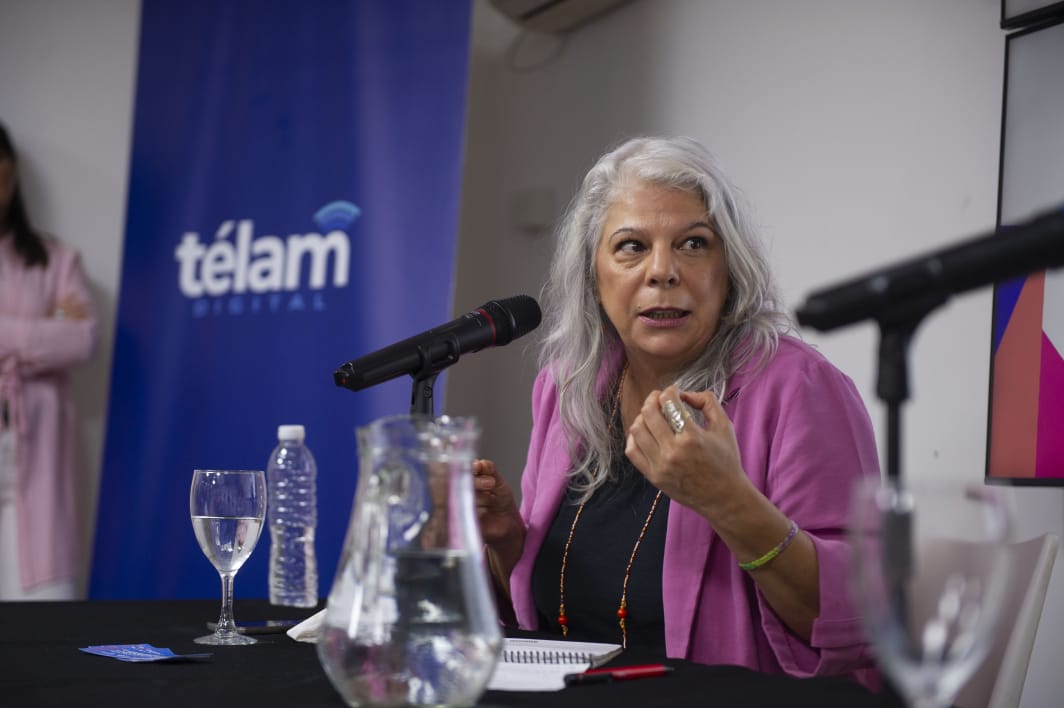
What has happened to policies for the protection and assistance of victims of gender-based violence?The Micaela Law on
free legal protection is not in place. In some provinces and in Buenos Aires there are 144 telephone lines of their own, but in the rest of the state no, which can stimulate the aggressors. Social institutions have taken care of the assistance of threatened women, but demand has been increasing and international funding is sought. In addition, the state law on the transpon quota has not been respected and redundancies have increased throughout the state.
What about the right to abortion?
Milei has always been against the right to abortion. He presented a draft to discuss the issue, but the Government did not give it priority. It is the Ministry of Health that provides materials and training to ensure abortion, but it does not exist since we have a new government. We do not know how much material is available, nor how long the practice of abortion can be guaranteed. The president's opposition to this right is a silent but firm threat.
Is the country’s gender map maintained?
In the past, the Ministry of Women dealt with all matters, but since the closure none of this has taken place. The UN Agency for Gender Equality and Women’s Empowerment and the UN Population Fund have made different resources available to feminist organizations and created a new support network. The first meeting was held recently in Buenos Aires, and it was very good, there is a lot of expectation.
The testimonies of feminist women who voted for thousands of people in the various assemblies are being collected.
Yes, it is. Several women who claim to be feminists voted for Milei. In this division, feminists have the key to dialogue and regrouping as a society. Perhaps if the feminists got together there we would find a space for dialogue. Many young men have voted for Milei, but when we have talked about abortion, they show us their differences with the government. That point, violence against women, femicides or child abuse, are issues that really bring us closer together.
How does the socio-economic situation in Argentina in the future represent?
Analysing the situation is difficult, I am processing it. A large percentage of the population chose Milei. Those voters have not heard them so far, they may have been ignored and Milei has taken for granted as a representative. I'm not optimistic about the situation in Argentina, or about the violent policies of the government team, but about the strength that we feminists are building, yes, to protect those who need it most, to rethink our path and help each other.
Adolfo Bioy Casares (1914-1999) idazle argentinarrak 1940an idatzitako La invención de Morel (Morelen asmakizuna) eleberria mugarritzat jotzen da gaztelaniaz idatzitako literatura fantastikoaren esparruan. Nobela motza bezain sakona da, aparta bere bakantasunean, batez... [+]
Martxoaren 8a Getxo bere bizitokian igaro du: kumbia dekolonial eta antiarrazista topaketa antolatu du Algortako Herriko Tabernan, Abianen, Hija del Nopal DJrekin batera.
Argentinatik Getxora migratu zen Celeste Agüero, kantutegi herrikoi batekin eta poesia xuxurlatzeko... [+]
On June 28 of this year, Casa in Flames (Etxea Sutan), a dramatic comedy directed by Dani de la Orden, premiered. I told him I thought I would see him a month before the festival, when I was talking to a friend, and he recommended it to me. Although we do not always agree, the... [+]
On 25 May, Fatherland Day was celebrated. Argentina. There they now have a president who loves his homeland and travels the world, making him known. He also went through Spain to go to the satanic “Europa Viva 2024”. Those who ridiculed, now frighten us because they are... [+]
The star of the Argentine neoliberal, Javier Milei, has become the reflection of the Trumpian incongruity with the media impact of its public interventions. Similarly, the corrosive use of social networks such as X makes it possible to undo any opposition strategy at least... [+]
Azken hiru hilabeteetan %8 igo da tasa: 3,5 milioi pertsona gehiago daude pobreziaren mugaren azpitik. Mileiren neurriak txalotu ditu Nazioarteko Diru Funtsak, langileen pobretzea handitzen den bitartean.
He doesn't win, he's crazy, what he's saying is not possible. Anyone sees that a state is not prepared to govern. He's a theorist, he's not aware of reality. The steps taken by feminism are irreversible, citizenship will not accept to question certain rights. Those on the left and... [+]
Given the political shortsightedness of the International Monetary Fund, by not applying a kit to the Argentine debt received from the neoliberal era of Macri, President Fernández began to approach Russia and China to attract essential investments to stimulate mutual trade... [+]







